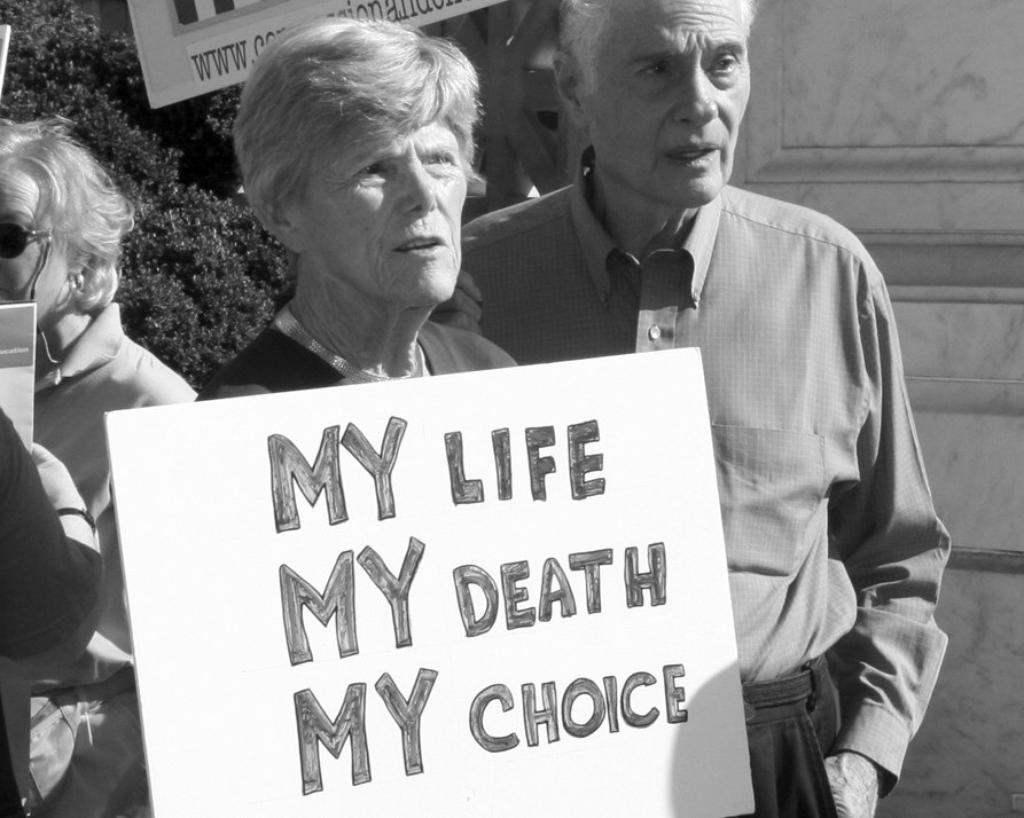As we reach the height of the political season, we are inundated with pundit opinions, news commentaries, and our own questions about the impact of the Presidential election. In the healthcare sphere, the future of the Affordable Care Act, funding for biomedical research and the cancer moonshot, cost containment, and prescription drug pricing are central issues, and it is truly important to know where each candidate stands. However, our analysis cannot end there. Given the rapid pace of scientific and technological advancement, it is equally important to consider how each candidate would identify and evaluate prospective medical, scientific and technological questions as they emerge.
Put another way, we need to understand each candidate’s framework for bioethical decision making.

Photo Credit: By Krassotkin (derivative), Gage Skidmore (Donald Trump), Gage Skidmore (Hillary Clinton) [CC BY-SA 3.0], via Wikimedia Commons
Easier said than done, right? In the era of skimmed newsfeeds and 140 character sound bytes, it is rare to catch a glimpse of the evaluative process that belies a polished campaign bullet point. However, one such opportunity arose at the CNN Democratic Town Hall in February 2016. A man with a self-described terminal cancer diagnosis asked how Hillary Clinton would lead “the respectful conversation that is needed around” the issue of death with dignity. Secretary Clinton’s response offers some insight into how she considers issues with significant moral, legal and social implications:
“So I don’t have any easy or glib answer for you. I think I would want to really immerse myself in the . . . ethical writings, the health writings, the scientific writings, the religious writings. I know some other countries . . . have a quite open approach. I’d like to know what their experience has been.”
Photo Credit: CCO Public Domain
As noted in a Hasting’s Center blog post, a Washington Post reporter described Secretary Clinton’s answer as “circuitous” and “vague”. Certainly, Clinton’s answer does not offer a clear position. However, it does show how she would evaluate an issue with significant moral, religious, medical and legal components. Death with dignity laws have passed in a handful of states (i.e., CA, OR, VT, WA) and are under consideration in many others. We are far from reaching a nation-wide consensus, and getting to that point – if possible – will be a long and complex process.
Recognizing that an issue is one where reasonable minds can differ, committing to respectful dialogue, accounting for moral, religious, and psychological perspectives, seeking out medical facts, calling for expert input, and analyzing practical experience will be essential to moving forward.
Related article: “IMPAKTER ESSAY: VACCINATION, MEDICAL TOURISM, AND THE EXPANSION OF GLOBAL BIOETHICS”
The importance of a sound bioethical decision-making process was recently underscored in a report of the Presidential Commission for the Study of Bioethical Issues (Commission), an expert advisory body established by President Obama. Comprised of experts in medicine, science, religion, law and engineering, the Commission investigates specific subjects at the request of the Executive Office of the President. Similar bioethics advisory panels were established by President Bill Clinton and President George W. Bush during their terms of office. However, this is not required. It will be up to the next President to decide whether to establish a bioethics advisory panel, who to appoint, and what topics to address.
Photo Credit: CCO Public Domain
In recent years the Commission reported on genetic privacy, direct-to-consumer diagnostic testing, human subjects research protection, and ethical responses to public health epidemics. However, as Election Day draws closer, the Commission’s report on “Bioethics for Every Generation: Deliberation and Education in Health, Science and Technology,” resonates most of all.
In this report the Commission posits that both open, democratic deliberation and strong ethics education are essential to the development of dynamic, practical and morally based solutions required in bioethics. The report, even includes a road map for effective deliberation that starts with an open policy question, allows time for democratic debate and expert input, and concludes with practical, actionable recommendations.
Though the Commission’s recommendations are set in the context of bioethical decision-making, they seem appropriate for many subject areas in which reasonable people can disagree. Patience, open mindedness, and tolerance for other points of view are the hallmarks of an effective leader, regardless of subject matter or party affiliation.
Will the next President keep this framework in mind when addressing the challenging questions the country faces today, and will face in years to come? One can only hope and, of course, vote.
Recommended reading: “BIOEDGE: SHOULD PSYCHIATRISTS TELL VOTERS WHAT THEY THINK ABOUT TRUMP”












